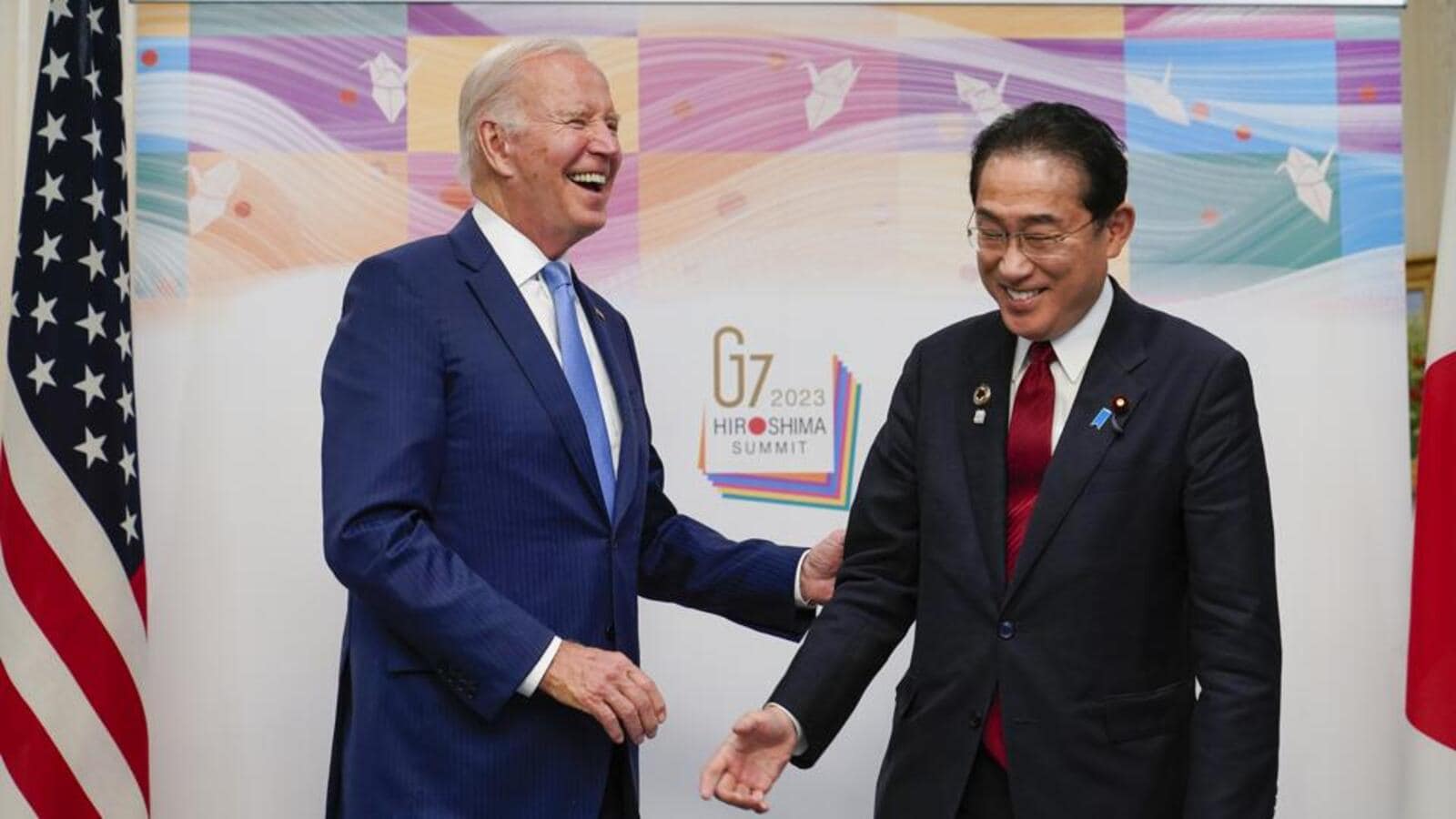
Washington: A day after US President Joe Biden cancelled the Australia and Papua New Guinea (PNG) leg of his visit, the US system got into damage control mode with Biden speaking to PNG’s prime minister and national security adviser (NSA) Jake Sullivan reiterating that the visit’s rescheduling must not be read as a dilution of the US commitment to the Indo-Pacific. Sullivan also said that dealing with Chinese economic coercion will be a top priority at the G7 summit in Hiroshima, Japan from May 19-21.
{{^userSubscribed}}
{{/userSubscribed}}
{{^userSubscribed}}
{{/userSubscribed}}
According to a White House statement, Biden called PNG’s PM James Marape to personally convey he would be unable to travel to meet Pacific Island Forum leaders due to the need to return to Washington DC to meet the Congressional leadership on the debt ceiling crisis.
“The President emphasised continued US commitment to the renewed partnership with the Pacific Islands and conveyed that Secretary Blinken would represent him at the US-Pacific Islands Forum meeting in Port Moresby,” the statement read. It added that Biden had invited all Pacific Island leaders to DC for a second summit (he had hosted them last year for the first time).
Separately, during an interaction with reporters on board Air Force One, NSA Sullivan claimed that Biden’s visit to Japan was happening in the backdrop of “one of the most effective and impactful strings of American diplomacy in the Indo-Pacific in an incredibly long time”. To substantiate the claim, he pointed to US hosting Japan’s PM in January and supporting Tokyo’s defence modernisation plans; the unveiling of the initiative on critical and emerging technologies with India; the announcement of an enhanced defence cooperation agreement with Philippines; progress on AUKUS (the nuclear submarine deal between Australia, the US and United Kingdom) in March; the visit of South Korea’s President Yoon Suk-yeol to Washington DC in April.
{{^userSubscribed}}
{{/userSubscribed}}
{{^userSubscribed}}
{{/userSubscribed}}
Sullivan said that when Biden’s decision to postpone his visit was juxtaposed with where the US was with respect to alliances and partnerships in the Indo-Pacific, “this notion that somehow the PRC is sitting there happy and comfortable about the situation is a convenient media narrative going into this trip, but it does not reflect reality in any way”.
He added that Biden felt it was critical to be at the G7 because the format was central to getting alignment and convergence with key countries — “including, by the way, the countries in the Quad, because both Australia and India will be in Hiroshima, and he will have the opportunity to engage with them there”.
When asked if the visit’s postponement was a reflection of the US “not showing up”, which was essential by the administration’s own admission to counter China, Sullivan said, “There is a kind of remarkable extrapolation from not going to two countries on a particular date to “the United States is not showing up in the region”. And it’s, I think, completely belied by the actual delivery, both in presidential time of visits, of hosting of major leaders in Washington.”
{{^userSubscribed}}
{{/userSubscribed}}
{{^userSubscribed}}
{{/userSubscribed}}
Sullivan said that the G7 summit will also see a discussion on the “common concerns and issues associated with the policies and practices” China. “I think you will see, coming out of this summit, alignment and convergence around the fundamental principles of our approach to the People’s Republic of China.”





